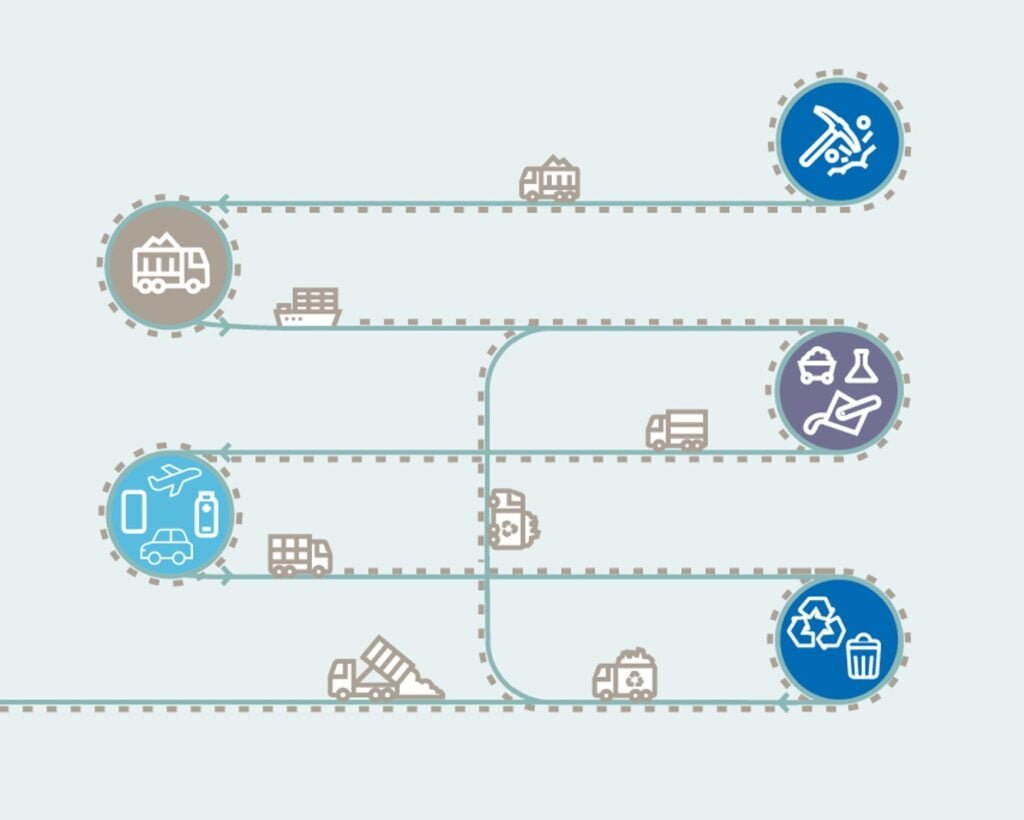Cobalt Value Chain Mapping – Shaping Priorities for Responsible Sourcing
The Cobalt Institute – the global trade association representing the cobalt industry – undertook a comprehensive mapping of the cobalt value chain. In preparation for emerging environmental and human rights due diligence regulation in Europe and elsewhere, it serves to share a common understanding of the actual and potential risks in the cobalt industry and to highlight the trends and gaps vis-à-vis future legislation and expectations for companies in the cobalt industry. It is also a tool for engagement with stakeholders involved in the value chain to help drive impact-oriented outcomes.
Now available, the Cobalt Value Chain Mapping includes a breakdown of all stages from the upstream down to the end users and recycling/disposal, including characterization of each stage. The mapping features industry-level actual and potential environmental and human rights risks at each stage of the value chain.[1]
The Cobalt Institute prioritized industry risks with the highest impact to people and planet. This approach was aligned with the authoritative framework of the UN Guiding Principles on Business and Human Rights (UNGPs) on which emerging due diligence legislation - including the new EU Corporate Sustainability Due Diligence Directive (CSDD) - is premised.
Based on content available in the public domain, including market data and cross-sector expert interviews, the mapping takes into consideration potential new supply chain dynamics such as the diversification of cobalt mining and trading.
As part of this project, the Cobalt Institute also looked at existing mitigation measures (existing standards, audit schemes, guidance and frameworks, multi-stakeholder initiatives, etc.) and emerging trends to be able to assess what issues are being adequately addressed and where there is opportunity for further action. For instance, whilst there are known risks in artisanal and small-scale mining (ASM) in the Democratic Republic of Congo (DRC), including poor working practices and child labor, there are a number of initiatives already in place to address this. This includes the multi-stakeholder action platform Fair Cobalt Alliance (FCA) and the ASM Cobalt Framework developed by the Global Battery Alliance’s (GBA) Cobalt Action Partnership. The Cobalt Institute is an active member of both the FCA and the GBA.
The value chain mapping process included workshops where members were presented with the findings for discussion. The outcomes have shaped the Cobalt Institute’s priorities for responsible sourcing for the next two years, including the identification of opportunities for further research into blind spots and for leverage and collective action by the cobalt industry to drive impact-oriented outcomes.
[1] The actual and potential risks were identified at industry-level and do not necessarily pertain to a specific company or operation.

